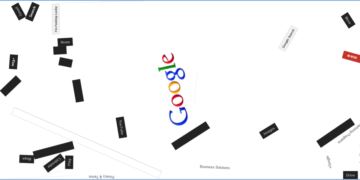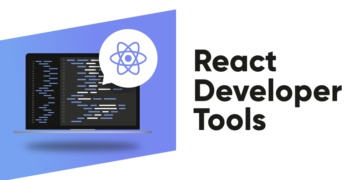Are you ready to take your career in information systems audit to the next level? If so, then obtaining the Certified Information Systems Auditor (CISA) certification might just be what you need. As a highly respected and globally recognized credential, CISA opens doors of opportunity for professionals looking to establish themselves as experts in the field.
But how can you ensure that you’re fully prepared for the rigorous CISA exam? That’s where practice questions come into play. In this blog post, we will dive into everything you need to know about CISA practice questions – from their importance and benefits, to how they can help boost your chances of success. So let’s get started on this exciting journey towards becoming a certified auditor! cisa practice questions
CISA Practice Questions|All You Need to Know
Obtaining the CISA certification is a significant achievement for professionals in the field of information systems audit. It not only validates your expertise but also enhances your credibility among employers, clients, and peers. With this prestigious credential, you demonstrate your commitment to maintaining high standards of IT governance, risk management, and internal controls.
Now, let’s talk about practice questions specifically tailored for the CISA exam. These questions are designed to simulate real exam scenarios and test your knowledge across various domains such as auditing processes, IT governance, risk management, and more. By practicing with these questions regularly, you can familiarize yourself with the format of the actual exam and identify areas where you may need additional study or improvement.
Additionally, working through practice questions enables you to gain confidence in your abilities leading up to the actual exam day. As familiarity increases through repeated exposure to different question types and topics covered by CISA exams over time; anxiety levels decrease considerably when faced with similar challenges during testing situations – allowing candidates who have put effort into their preparation process an advantage over those who haven’t made use yet!
Importance and Benefits of CISA Certification
The importance of obtaining a CISA certification cannot be overstated. In today’s dynamic and ever-evolving business landscape, organizations are becoming increasingly dependent on technology to drive their operations. With this increased reliance comes the need for professionals who can effectively manage and ensure the security of these technological systems.
A CISA certification demonstrates your expertise in information systems auditing, control, and security. It serves as proof that you have the necessary skills and knowledge to identify vulnerabilities, assess risks, and implement controls to protect an organization’s information assets.
One of the key benefits of CISA certification is enhanced career prospects. As technology continues to advance at a rapid pace, companies are actively seeking individuals who can help them navigate the complex world of IT risk management. Holding a CISA certification not only increases your marketability but also opens doors to higher-level positions with greater responsibilities and better compensation.
In summary? A CISA certification is more than just another line on your resume – it signifies expertise in crucial areas like IT risk management and security controls. The value it adds extends beyond personal career growth; it helps organizations safeguard their vital data assets against potential threats. So if you’re looking for ways to boost your professional standing within the field of IT audit or simply seeking new challenges within your current role – consider pursuing a CISA certification!
How to Prepare for the CISA Exam
Preparing for the Certified Information Systems Auditor (CISA) exam can be a daunting task, but with the right approach, you can increase your chances of success. Here are some tips to help you effectively study and prepare for this important certification:
1. Understand the Exam Structure: Familiarize yourself with the exam format and content domains outlined by ISACA (Information Systems Audit and Control Association). This will give you a clear idea of what topics to focus on during your preparation.
2. Create a Study Plan: Develop a comprehensive study plan that includes dedicated time slots for each domain covered in the exam. Break down your study sessions into smaller, manageable tasks to avoid feeling overwhelmed.
3. Utilize Reliable Resources: Invest in quality study materials such as textbooks, online courses, practice exams, and review guides specifically designed for CISA preparation. These resources will provide valuable insights into key concepts and help you identify any knowledge gaps.
4. Practice with CISA Practice Questions: Engaging in regular practice is crucial for building confidence and improving test-taking skills. Solve CISA practice questions from reputable sources or use official ISACA resources like their question database or mock exams.
Remember that everyone’s learning style may differ; therefore, it’s important to tailor these tips according to what works best for you individually.
Types of CISA Practice Questions
When it comes to preparing for the Certified Information Systems Auditor (CISA) exam, practice questions are a crucial part of your study routine. They not only help you gauge your understanding of the subject matter but also familiarize you with the format and style of questions that you may encounter on the actual exam day.
Additionally, there might be fill-in-the-blank or completion-style questions where you have to provide a specific term or phrase related to IS auditing practices. Some practice exams may include interactive simulations that mimic real-world scenarios requiring practical application of knowledge and skills acquired during preparation.
By practicing these different types of CISA exam-style questions regularly, you can enhance your critical thinking abilities while becoming familiar with how topics are presented in various formats. This will ultimately boost your confidence when facing the actual exam challenges ahead! study resources from spoto
Tips for Answering CISA Practice Questions
When it comes to tackling the CISA practice questions, preparation is key. Here are some tips to help you answer them with confidence and accuracy. To improve your chances of success, develop a study plan that covers all domains of the CISA syllabus. Dedicate sufficient time to each topic area based on its weightage in the exam. This way, you’ll be well-rounded in your knowledge and better equipped to handle various question types.
Additionally, practice makes perfect! Utilize sample questions from reputable sources or invest in a quality test bank specifically designed for CISA preparation. Regularly answering practice questions will not only enhance your understanding but also increase familiarity with different concepts tested on the exam.
In addition to technical knowledge, developing strong analytical skills is crucial for answering scenario-based questions effectively. These types of queries often require identifying patterns or relationships among variables provided in a given context – so hone those critical-thinking abilities!
Lastly (but definitely not least), review! After completing sets of practice questions, take time to analyze your answers objectively – whether correct or incorrect – by understanding why certain choices were right or wrong helps fine-tune strategies moving forward.
Remember: the CISA exam is not just about correct answers but also understanding and applying concepts
Common Mistakes to Avoid in CISA Practice Questions
One of the key aspects of preparing for the CISA exam is practicing with sample questions. While these practice questions can be incredibly useful in familiarizing yourself with the content and format of the exam, it’s important to be mindful of common mistakes that many candidates make. By being aware of these pitfalls, you can avoid them and maximize your chances of success.
One common mistake is not reading the question carefully. It’s easy to rush through a question and assume you know what it’s asking without fully understanding its nuances. Take your time, read each question thoroughly, and ensure you comprehend all parts before selecting an answer.
Don’t fall into the trap of overthinking or second-guessing yourself. Sometimes, our initial instincts are correct. Trust your knowledge and experience when answering practice questions instead of overanalyzing every option. By being mindful of these common mistakes and actively working towards avoiding them in your preparation for CISA certification exams, you’ll be setting yourself up for success come exam day!
Conclusion
In today’s ever-evolving digital landscape, obtaining a CISA certification has become increasingly important for professionals in the field of information systems auditing. The benefits are undeniable – from increased job opportunities to higher earning potential and enhanced credibility.
Remember to approach each question strategically by carefully reading and understanding the requirements before selecting your answer. Pay attention to keywords and utilize effective techniques such as process of elimination or referring back to relevant sections in the ISACA manual. While practicing, be mindful of common mistakes that candidates tend to make, such as rushing through questions without fully comprehending them or second-guessing themselves excessively. Avoid these pitfalls by staying focused, managing your time effectively, and maintaining confidence in your abilities.


























